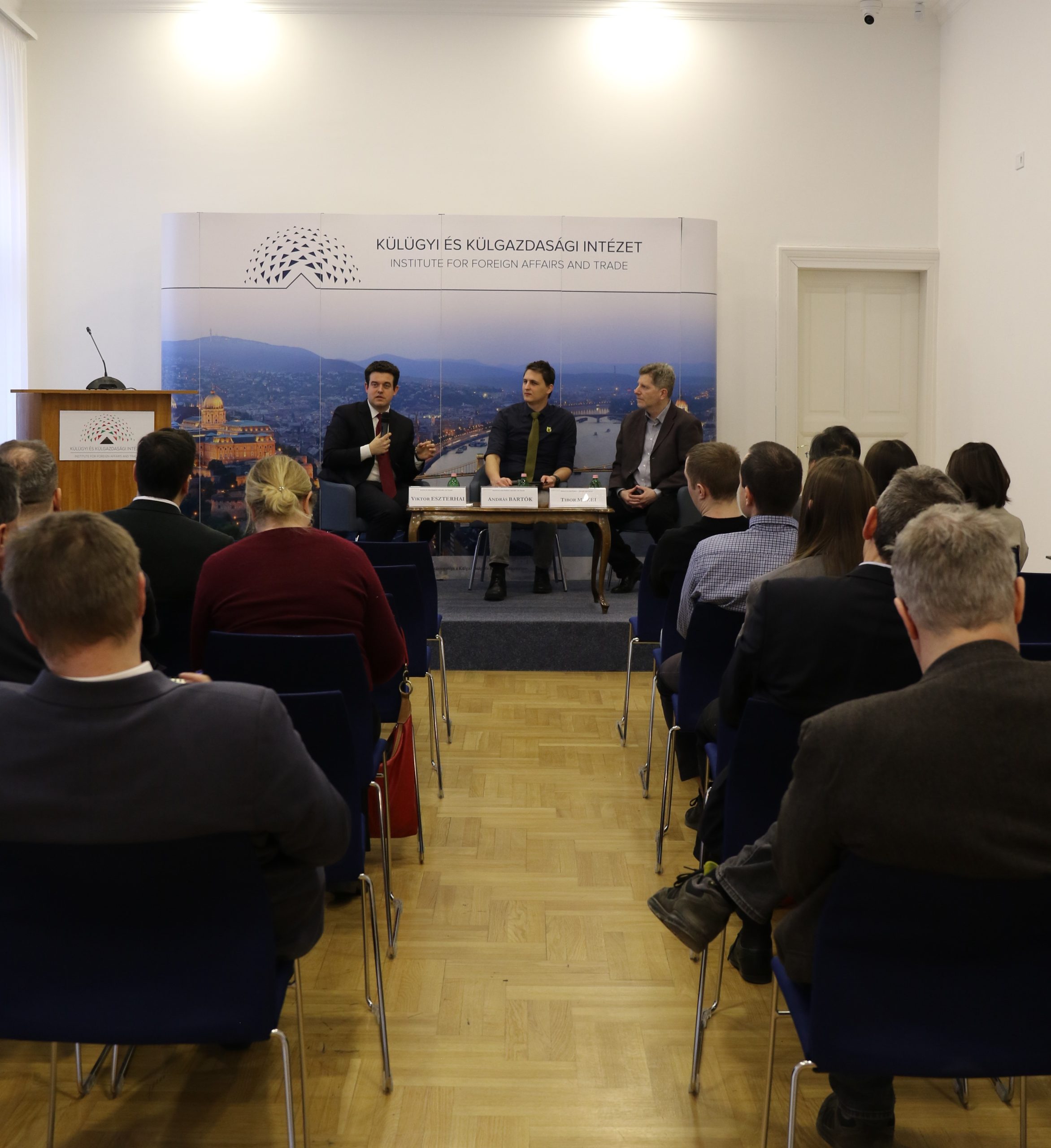On February 15, 2023, the Institute for Foreign Affairs and Trade (IFAT) hosted a panel discussion on “What is Japan’s Foreign Policy Strategy in These Troubled Times?” The expert discussion was held with the participation of Viktor Eszterhai, Senior Research Fellow at IFAT, and András Bartók, assistant lecturer at the Department of International Relations and Diplomacy at the National University of Public Service. The discussion was moderated by Tibor Mezei, the Research Fellow of IFAT.
At the beginning of the discussion, Viktor Eszterhai shared that in January 2023, he participated in a research trip organized by the Ministry of Foreign Affairs of Japan under the “Multi-layered Network of Japan Experts” program. During his visit to Japan, he held discussions with experts from the Ministry of Foreign Affairs, several research institutes, and academia on developing a relevant foreign policy strategy in the context of great power rivalry that threatens globalization. Viktor Eszterhai argued that Japan’s foreign policy strategy is worth studying because in some respects the country is in a similar situation to the European Union: both are economic major powers committed to globalization. However, the ability to defend their interests is limited, as they both lag behind the great powers in terms of military capacity and their security is guaranteed by the military ally, the United States.
In the discussion, the experts explained Japan’s geostrategic position, the key challenges, and the rapidly changing balance of power in the region. They moreover mentioned Japan’s main objectives in defending the international order and the risks posed by major powers’ misjudgements. The experts discussed the specific foreign policy measures that should be associated with these goals, such as deterrence, cooperation with allies, and the development of Japan’s own capabilities. In the discussion, András Bartók emphasized the historicity and complexity of Japan’s policy responses and also highlighted the internal expert debates behind these steps. Finally, the experts commented on how the Japanese example could be useful for the European Union.
The Ambassador of Japan to Hungary, H.E. Masato Otaka was also present in the audience and his reflecting thoughts gave an adequate conclusion to the panel discussion.
Photos by Institute for Foreign Affairs and Trade (IFAT)

